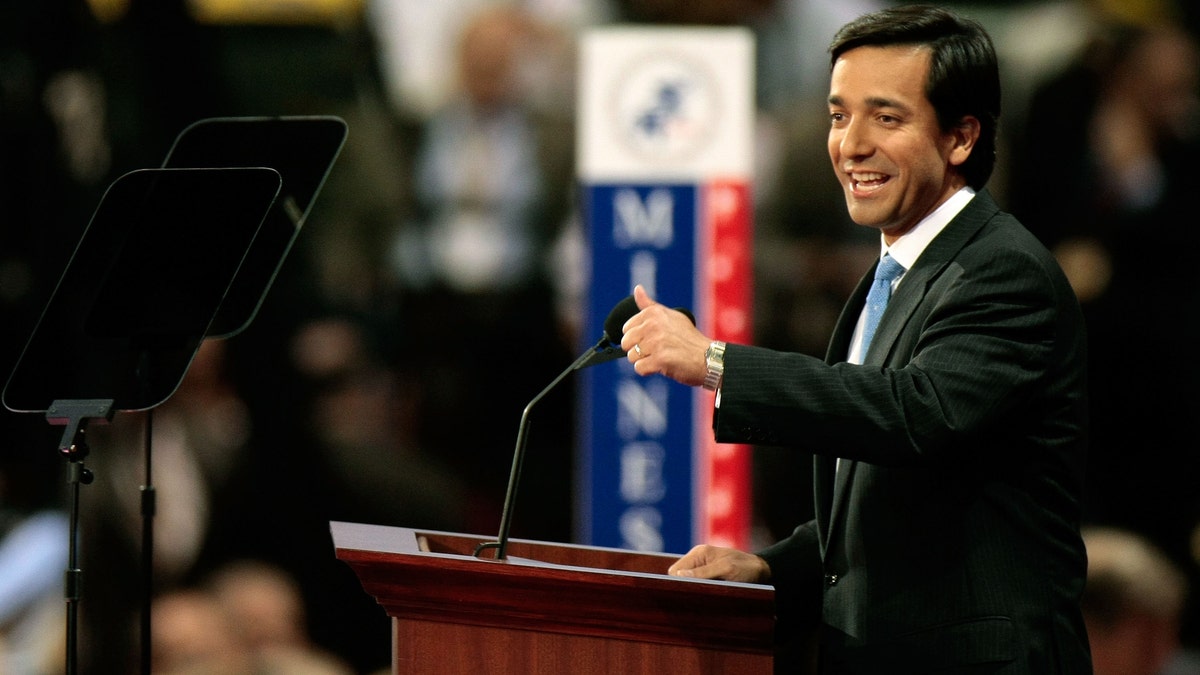
ST. PAUL, MN - SEPTEMBER 03: Resident Commissioner of Puerto Rico Luis Fortuno speaks on day three of the Republican National Convention (RNC) at the Xcel Energy Center on September 3, 2008 in St. Paul, Minnesota. The GOP will nominate U.S. Sen. John McCain (R-AZ) as the Republican choice for U.S. President on the last day of the convention. (Photo by Win McNamee/Getty Images) (2008 Getty Images)
For Gov. Luis Fortuño, the end came at the hands of his own party, his inability to convey his manifesto and a tin ear to what was reality outside the walls of La Fortaleza.
Fortuño and the cupola of the party suffered a shattering blow on Nov. 6. Puerto Rican voters went to the polls to oust the NPP from office, a vote more in retaliation against the administration’s policies and sense of entitlement, rather than an electoral mandate to PDP’s Alejandro García Padilla.
[Fortuño's] inability to take charge of his own party and control “the sharks” within it led the country to question his leadership and his capacity to govern
The outcome was a clear rejection of a misunderstood strategy modeled on Reaganomics – deep cuts to government bureaucracy, tax reductions, a mounted challenge to unionism and control of government growth.
It was also a repudiation of the perception of prepotency on the part of the governor and members of his party and his administration.
“The people didn’t understand the decisions the governor took and why,” said Antonio Sagardia, ex Minister of Justice for the Fortuño administration.
“They identified them as decisions taken to favor an economic elite and not the people as a whole or the country,” he said.
A Republican vision of government for an island with half the GDP of the nation’s poorest state, Mississippi, was more than a tough sell at the best of times, and these measures were implemented during a harsh economic climate.
What made it worse was the ineffectual and at times uncaring manner in which these measures were taken and how the reasons behind them were communicated or not to the people
“Fortuño was perceived by many - including many non-party fanatics - as being uncaring about the impact his financial austerity program had on those who suffered most from it,” said Roger Maldonado, a lawyer who practices on the island and mainland.
Nor did it help that that his administration’s “such is life” – words said by a top Fortuño appointee in a public forum - became the “let them eat cake” of his administration.
“He certainly made a poor public relations effort in selling the program before, during, and after its implementation,” he added.
Herein lies the Achilles heel of the Fortuño administration – how he executed his policies and governance and the manner in which Puerto Rico perceived it.
The latter was not helped by staunch political adversaries lodged in the heart of his own party, such as former president Thomas Rivera Schatz, nicknamed The White Shark, and former mayor of San Juan, Jorge Santini, known as “el guapetón de barrio,” who openly flaunted their contempt of the governor.
“If you want to understand who really cost Fortuño the election, then look no further than top members of his own party,” Sagardia said.
“They either publicly went against his decisions or kept him locked up in an ivory tower, telling him that all was well,” he added.
His inability to take charge of his own party and control “the sharks” within it led the country to question his leadership and his capacity to govern.
”Fortuño is thought to have allowed and would likely continue to allow the sharks within his party, starting with Rivera Schatz, to control an agenda for the benefit of a well-connected few and to the detriment of many,” Maldonado said.
Some do give him the benefit of the doubt and state that history will cast Fortuño in a different light.
“He tried to experiment with being a different governor, doing what was needed, notwithstanding the political cost,” said Sagardia,
“He always said that he was not a career politician. He came to do what was right and decided to take the tough decisions,” he said.
In an interview with FoxNewsLatino earlier this year, Fortuño was almost prescient about what the future held.
“I came into office to do what was correct, not to see what was politically expedient to get re-elected,” he said.
“Especially in the day and age that we are living in, that is required of elected officials. And if it just so happens that you don’t get re-elected, so be it, as long as you are doing the right thing,” he added.
In what could prove a pyrrhic victory, García Padilla should hear the lesson that sometimes doing the right thing is not enough.








































